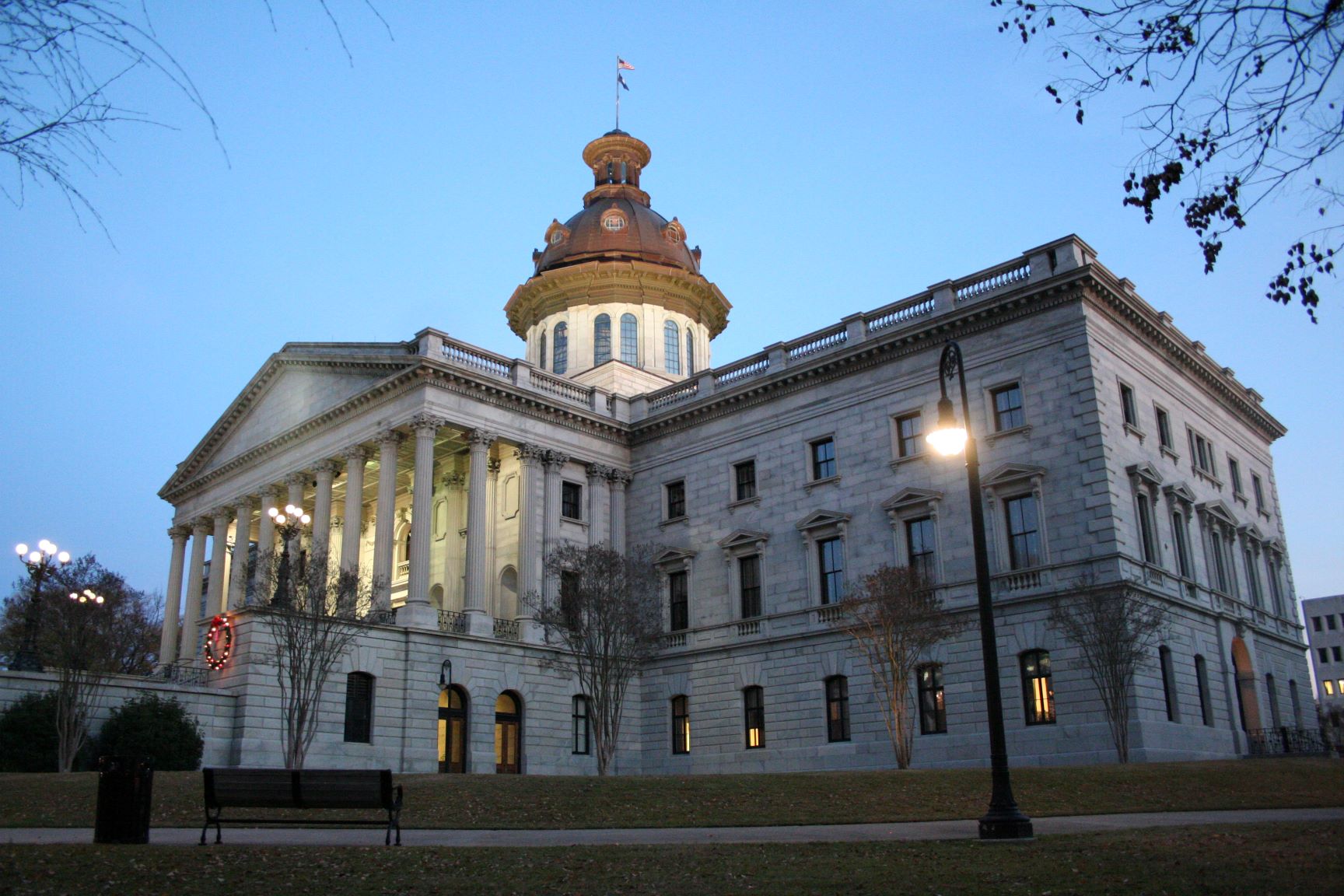BY: SKYLAR LAIRD – South Carolina Daily Gazette
COLUMBIA — Republicans in the South Carolina House bickered over the role of state government and what deserves taxpayer dollars before ultimately passing a $13.2 billion budget that provides tax breaks, repairs bridges and boosts teacher pay.
The spending plan for the fiscal year starting July 1 was approved 104-15 on Tuesday, with all “no” votes coming from the hardline conservative Freedom Caucus.
None of the two dozen amendments put up by the group’s members passed, as they tried repeatedly to yank funding for what they said did not support “core functions of government.”
All of their social policy proposals were also swatted down as not germane to the budget. That included attempts to require the Department of Social Services to place children in group homes according to their biological sex and remove exceptions for rape and incest from the state’s ban on covering abortions for public employees.
Exchanges between the Freedom Caucus and Republicans in the majority caucus were especially heated over a series of proposals to strip a combined $27 million from business recruitment incentives, tourism marketing and local arts programs to provide $5,000 to every sheriff’s deputy in South Carolina.
Introducing the series, Rep. Jordan Pace said deputies’ pay needs to be brought in line with starting salaries for K-12 teachers. While it’s great that the Legislature has approved big hikes for teachers and state law enforcement, he said, local law enforcement continues to lose officers due to low wages — often to state agencies.
“It’s important that we take care of sheriffs and sheriffs’ deputies. Help them have a living wage by removing non-core government funding to pay for that,” said the Goose Creek Republican. “We need to help them clear the gap we’ve created.”
But Rep. Chris Wooten, a former state trooper and Marine veteran, said the one-time bonus not only “creates false hope” about future funding but pits deputies against officers for cities and towns. The $70 million the state put into raising state officers’ pay over the last two years not only stemmed the exodus to local departments that paid better but forced counties and towns to pay their officers more to keep them.
“So, in effect, that helped everyone across the board,” said the Lexington Republican, who dared the Freedom Caucus to accuse him of not supporting law enforcement.
“If we give money to counties, what about city and town law enforcement officers?” he said, adding that any aid shouldn’t be a “one-time gig.”
Freedom Caucus members argued money for film incentives, sports marketing and the Arts Commission should be removed regardless of whether it goes to deputies.
“When we tax, we take money out of people’s pocketbooks,” said Rep. Adam Morgan, R-Taylors. “The core functions of the family would be housing, food. What wouldn’t be core functions are arts.”
Rep. R.J. May, R-Lexington, argued the $10 million for film incentives not only won’t work in increasing the number of movies and TV shows recorded in South Carolina, the money subsidizes executives who support politically progressive candidates and causes.
“The values we are importing via subsidies don’t align with South Carolina values,” he said. “Do we want to fund left-coast Hollywood film companies and executives to import their values to the Palmetto State?”
Freedom Caucus members also argued incentives to bring jobs and tournaments to South Carolina represent the government picking winners and losers instead of letting the “free market” work.
Other Republicans fired back, saying the government should put money into programs that ultimately improve South Carolinians’ lives.
“To stand here with an entire state economy hanging there, to insult our corporate citizens who provide jobs for the people in this state, and to be political pawns is asinine,” said Rep. Jay West, R-Belton.
Some jabs got personal.
Rep. Josiah Magnuson called money for deputies a commonsense proposal Republicans should want to support.
“People who pay their taxes are not desperate for sports marketing grants,” said Magnuson, R-Fingerville. “What they are desperate for is safety on our streets.”
Rep. Micah Caskey, R-West Columbia, then called him a hypocrite, noting he voted earlier in the debate against an amendment designed to encourage retired officers to come back to work to fill “critical needs” in law enforcement. The amendment, among the few approved, exempts officers from the cap that prevents retired state employees from drawing both an income and pension benefits.
Caskey also pointed out that Magnuson voted against last year’s budget that increased state officers’ pay, to which the Spartanburg County Republican said was a vote against spending in the overall budget, not particular salaries.
Amid the back and forth, Magnuson accused Caskey of being “concerned not about caring for people but about power. You want to exert power.”
Caskey, a frequent Freedom Caucus critic, paused briefly before dismissing the allegation: “Alright,” he said, then continued with his questioning over the potential positives of bringing sports tournaments to South Carolina.
What’s in the budget?
Overall, the two-day debate changed very little of what the House budget-writing committee advanced.
Other amendments approved on the floor included establishing a grant program for landowners needing to fix private dams still damaged by historic flooding of nearly a decade ago. Another also exempts retired school bus drivers from the income cap if they return to work for a school district to fill bus driver shortages.
Highlights of the spending package include a $500 million cut to property tax bills for homeowners, potentially saving them hundreds. The one-time credit on bills that go out this fall comes from a surplus in state sales taxes that’s accumulated since 2020 in an account for property tax relief.
It also provides for the third year of cuts to state income taxes under a 2022 law that will eventually reduce state revenue by $1 billion.
As for salaries, the budget sends school districts $230 million to increase teacher pay in an effort to combat an ever-worsening teacher shortage crisis. The minimum salaries for first-year teachers would rise to $47,000, which is $4,500 more than the salary floor this school year.
State employees making $66,667 or less would have their salaries increased by $1,000, while anyone making more than that would see a 1.5% increase.
Other big-ticket items include $200 million to repair the state’s aging bridges, fulfilling the first of five installments the transportation department requested. The House had a similar proposal in its budget last year, but the Senate took it out.
Other education spending includes $40 million for classroom instruction materials, $35 million to buy or lease school buses, $20 million for school safety upgrades, $5 million to map out every school to help first responders in an emergency, and $30 million to fund the inaugural year of scholarships in the voucher program before the state Supreme Court.








